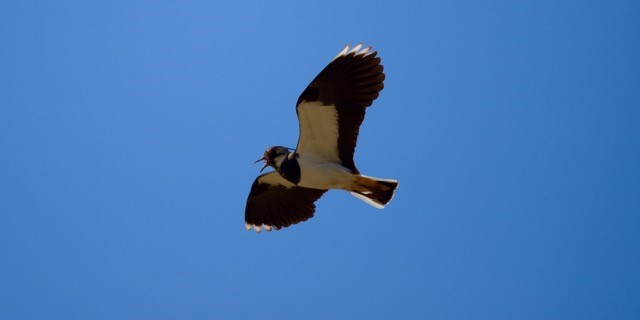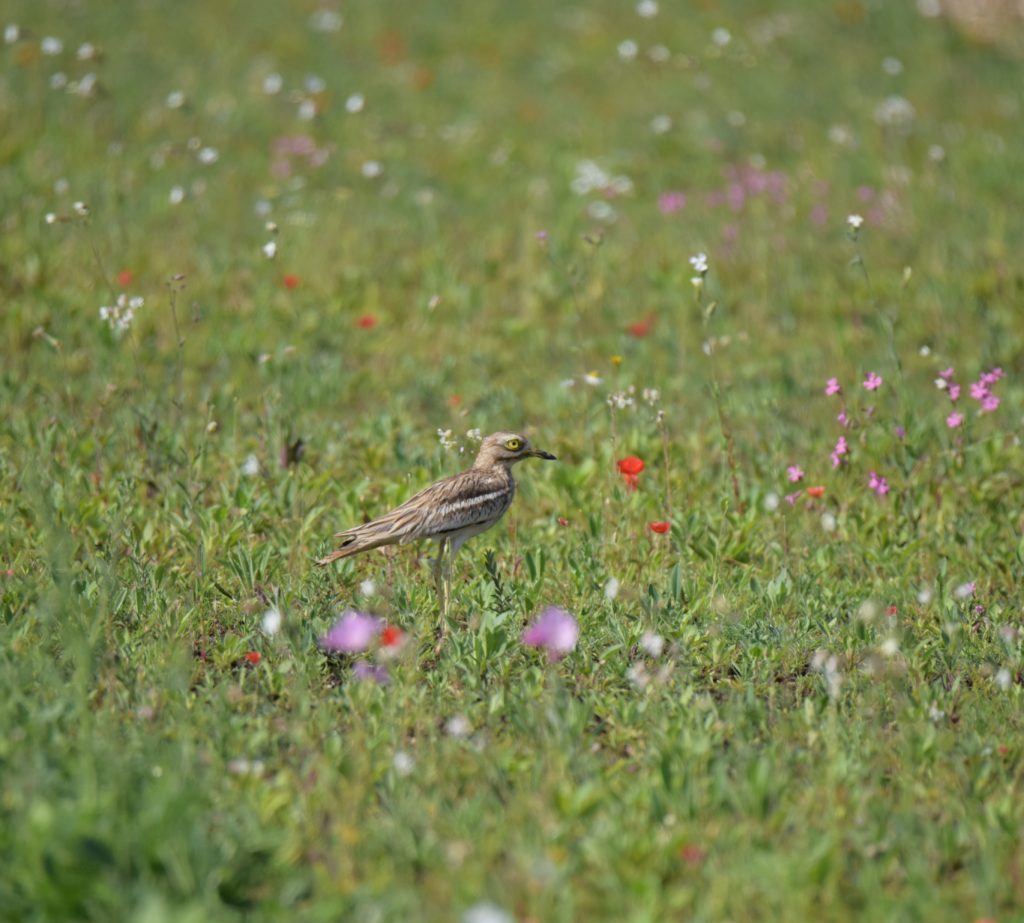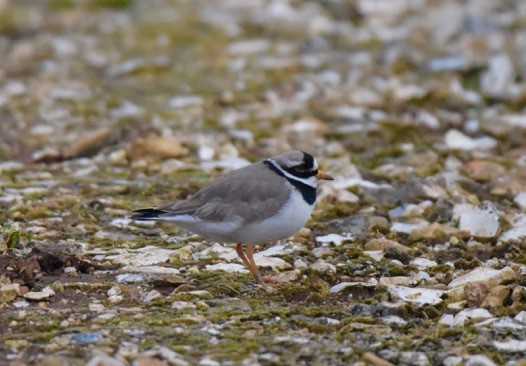We are delighted to hand our blog over to a special guest contributor this month!
Keith Betton is the Chairman and County Recorder of the Hampshire Ornithological Society. Keith has kindly agreed to let us share his findings from his 2019 visit to Ashe Warren Farm, where he discovered a few lovely surprises.
The wildflower and grass turf strips at Ashe Warren Farm are attractive to breeding birds with good numbers of common birds but also some scarce and declining ones. On visiting in April 2019, I was amazed to find 14 pairs of Lapwings incubating eggs. This is a Red-listed species, treated as Vulnerable in the UK and Near-threatened globally. Farming changes and an increase in predators in England have driven the steep decline in the breeding population and since 1960 numbers have dropped by 80 percent. So, to find 14 pairs nesting was tremendous. These days they only succeed well when they can group together and work as a team to chase off predators. Also, the lack of foxes and badgers at Ashe Warren will have helped.

Another great discovery was a nesting pair of Stone-curlews. Although this is much rarer than the Lapwing with only 350 pairs in the UK (of which maybe 30 are in Hampshire), it is Amber-listed in the UK indicating that recent declines have been smaller than other species. This is partly because bird conservationists have been working with farmers to give nests the best chances of success. Their first attempt failed (probably predated) but their second attempt resulted in two chicks being reared to fledgling age. Stone-curlews used to nest on downland, but as this is a habitat that has almost disappeared, the remaining areas are under a lot of public pressure. Their decision to choose farmland instead for nesting comes at a price. Nesting on ploughed fields means that they could be swamped with crops or killed when the crop is managed. The team have agreed that if any Stone-curlews choose to nest on turf that is due to be lifted we will make sure that the nest is maintained – with human intervention.

A final surprise – and perhaps the biggest, was the discovery of Ringed Plovers nesting between the turf strips. This is a bird that mostly chooses to nest on the coast on shingle beaches. So, it was a great discovery to find a pair nesting and rearing four chicks! Is it now Overton-on-Sea? Well, not quite. They do occasionally use gravel pits, but I can’t find a record of Ringed Plovers ever nesting on a turf farm… or a farm of any kind!

What it shows is that with care, and a certain amount of luck, wildlife can thrive anywhere. All it needs is something I call “Expectation Plus One”. And in that scenario the landowner does what you expect but goes beyond that. And the Ashe Warren team did.
I am looking forward to 2020!
Keith Betton
Chairman & County Recorder
Hampshire Ornithological Society
If you’d like to contribute to our blog or quarterly newsletter as a guest author, or if you have an interesting project that would make a great feature then we’d love to hear from you! Please give us a call on 01256 771 222 or email us at wildflower@wildflowerturf.co.uk